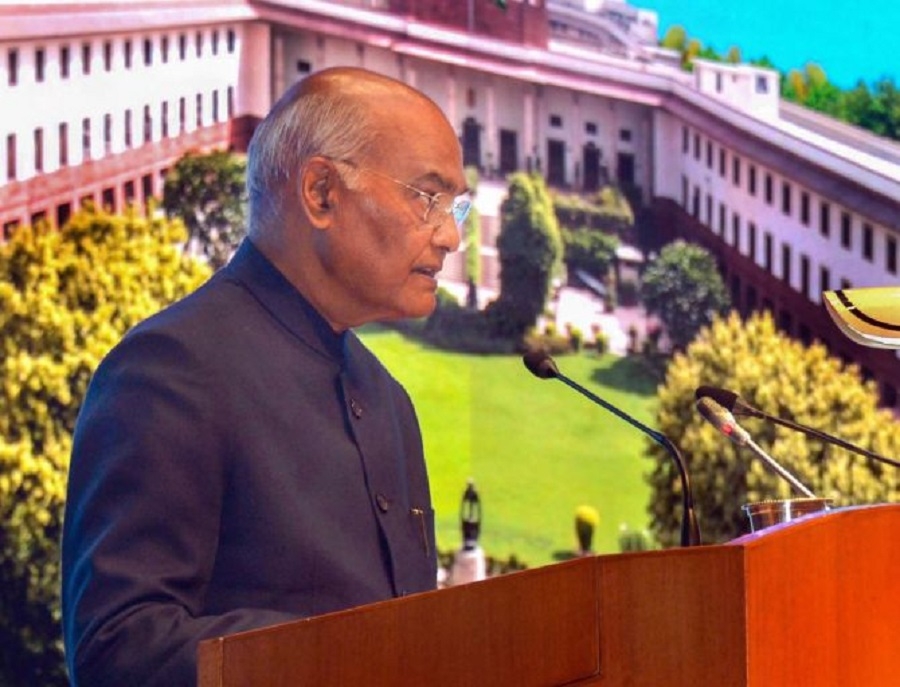Judiciary has pursued ‘cherished goal’ of gender justice: President
| Date :24-Feb-2020 |

NEW DELHI :
PRESIDENT Ram Nath Kovind on Sunday hailed the efforts of the Indian judiciary in pursuing the “cherished goal of gender justice” and said that the Supreme Court has always been “pro-active and progressive”. Speaking at the International Judicial Conference 2020 ‘Judiciary and the Changing World’, Kovind said the apex court has led “progressive social transformation” and referred to the two decades old Vishaka guidelines for preventing sexual harassment of women at workplace and the recent direction that women officers in the Army be granted permanent commission and command postings.
“In pursuing the cherished goal of gender justice, to mention one example, the Supreme Court of India has always been proactive and progressive,” the President said. “From issuing guidelines on preventing sexual harassment in the workplace two decades ago to providing directives for granting equal status to women in the Army this month, the Supreme Court of India has led progressive social transformation,” he said. The President expressed happiness that judgements of the Supreme Court are being now made available in nine vernacular languages to make them accessible to the common people and termed the effort as “extraordinary” keeping in mind the linguistic diversity of the nation.
“The Supreme Court of India also deserves admiration for carrying out many radical reforms that made justice more accessible to the common people. Landmark judgments passed by this court have strengthened the legal and constitutional framework of our country,” Kovind said. “Its bench and bar are known for their legal scholarship and intellectual wisdom. What it has achieved is nothing less than a silent revolution in diagnosing and correcting the afflictions that adversely affected the justice delivery system,” the President said. Kovind referred to the role of judiciary in harmonising environmental protection and sustainable development, which get a lot of attention in various countries. Dealing with the challenges faced by the judiciary in the wake of evolution of information technology, he said that new questions like data protection and right to privacy have emerged.
“With the evolution of information technology, there have emerged new questions, for example, of data and privacy,” Kovind said. “Finally, the all-important concern of sustainable development should command far more attention than it does today. You have held wide-ranging deliberations on these issues and suggested measures to overcome the challenges,” the President said. Kovind said the selection of topics for working sessions of the conference could not have been more meaningful as these five aspects -- gender justice, contemporary perspectives on protection of constitutional values, dynamic interpretations of the Constitution in a changing world, harmonisation of environment protection vis-a-vis sustainable development and protection of Right to Privacy in the internet age.
CJI says privacy a concern, proposes one law on environment: CHIEF Justice S A Bobde said the widespread use of technology has also brought with it concerns over mass data collection and an individual’s right to privacy; and also insisted on a single system laws cutting across various environmental issues. On Saturday, speaking on the second day at the International Judicial Conference 2020, ‘Judiciary and the Changing World’, Chief Justice Bobde said, “The two facets of globalisation that have posed the greatest challenges to the judiciaries across the world are the rise of global supply chains and the proliferation of information technology.”